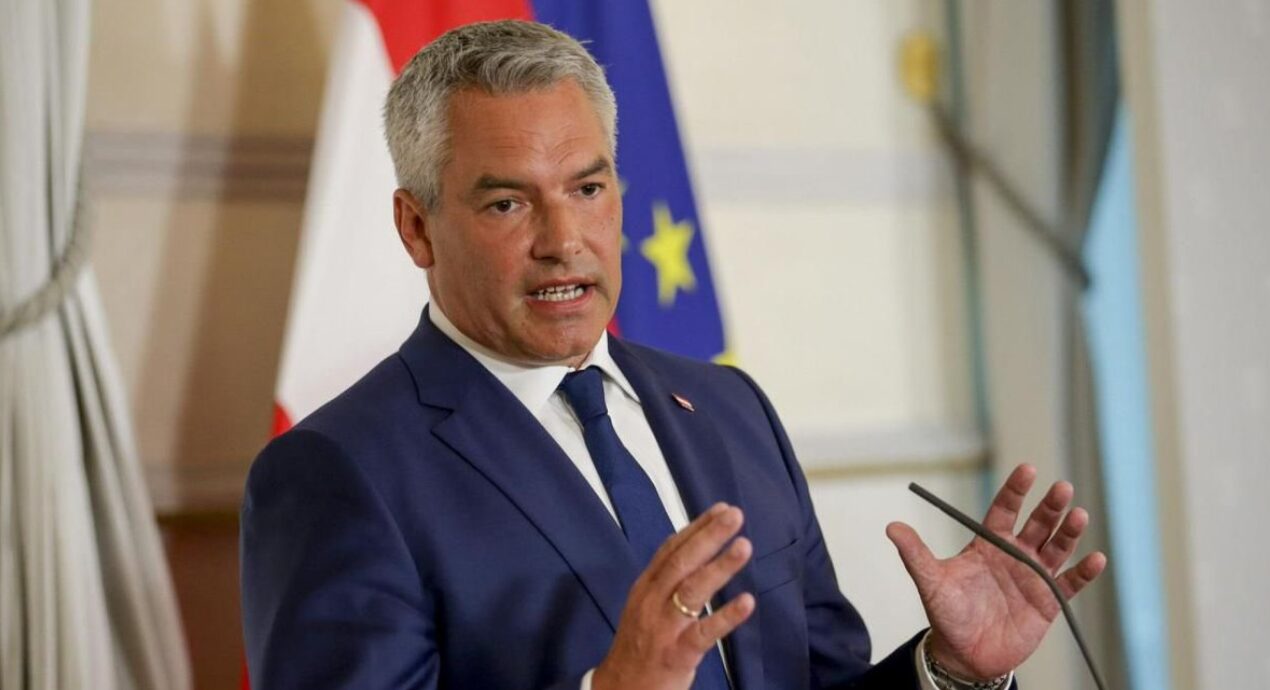Austria’s Chancellor Karl Nehammer resigns
Austria’s Chancellor Karl Nehammer Resigns: What Does This Mean for the Nation’s Future?
In a shocking turn of events, Austrian Chancellor Karl Nehammer has announced his resignation, leaving the nation in a state of uncertainty about its political future. Nehammer, who has been at the helm of Austria’s government since December 2021, has made the decision to step down amidst a flurry of controversy and political challenges. This unexpected move is sure to have significant implications for Austria’s political landscape, its international relations, and its citizens.
The Rise and Fall of Karl Nehammer
Karl Nehammer’s tenure as Chancellor was marked by a mix of crises, including the ongoing challenges of the COVID-19 pandemic, the war in Ukraine, and a series of political scandals. A member of the Austrian People’s Party (ÖVP), Nehammer took office at a time when Austria, like much of Europe, was grappling with the fallout of the pandemic. As a leader, Nehammer sought to balance public health concerns with economic recovery, but his policies often faced backlash from various political factions and the public alike.
His most notable move during his time in office was Austria’s strict lockdown measures, which were among the harshest in Europe. This policy, while aimed at controlling the virus’s spread, stirred up significant protests and civil unrest. Many felt that the government had overstepped its bounds, and the controversy surrounding these measures created a divide between Nehammer’s leadership and the Austrian public.
The war in Ukraine further complicated Nehammer’s role as Chancellor. Austria, as a neutral country, was faced with the difficult task of navigating its position in the European Union while maintaining its long-standing policy of neutrality. Nehammer’s response to the war, along with his support for EU sanctions against Russia, made him a divisive figure at home and abroad.
Despite his best efforts to maintain stability, Nehammer’s leadership was increasingly called into question. Political opposition parties, along with some members of his own ÖVP, began to express doubts about his ability to guide the country through its crises. This discontent, combined with personal controversies and internal party struggles, ultimately led to his resignation.
The Immediate Fallout
Karl Nehammer’s resignation has already sent shockwaves through Austria’s political sphere. His departure marks the end of an era for the Austrian People’s Party, which has been at the center of the country’s political establishment for decades. With Nehammer’s resignation, Austria faces the prospect of a new leader who may bring fresh ideas and approaches to the nation’s most pressing challenges.
The resignation has raised questions about the stability of Austria’s government and what the future holds for the ÖVP. Will the party be able to regain its footing and maintain control over the government, or will this event lead to a realignment of Austria’s political scene? The Austrian public is watching closely as the nation navigates this moment of political transition.
What Lies Ahead for Austria?
As Austria moves forward without Karl Nehammer at the helm, many are left wondering what the future holds for the nation. The resignation opens the door to new possibilities, but also comes with uncertainties.
1. A New Leadership: The Future of the ÖVP
With Nehammer stepping down, the Austrian People’s Party (ÖVP) will need to find a new leader to fill the void. The party will face a tough decision in selecting a successor who can unite its divided ranks, restore public confidence, and guide the nation through its current crises. The ÖVP will need a strong, charismatic leader capable of navigating Austria’s complex political landscape, which includes managing its relationship with the European Union, addressing economic challenges, and responding to global events like the war in Ukraine.
The choice of Nehammer’s successor could also influence the ÖVP’s standing in upcoming elections. If the party fails to find a leader who can inspire voters, Austria may witness a shift in power, with opposition parties like the Social Democrats (SPÖ) or the far-right Freedom Party (FPÖ) gaining ground.
2. Implications for Austria’s Domestic Politics
Nehammer’s resignation also signals a potential shift in Austria’s domestic policies. With a new leader at the helm, there could be a change in how the government approaches key issues such as the economy, immigration, climate change, and social welfare. Austrians may see a shift in the way the government engages with its citizens, particularly in response to the public’s dissatisfaction with past policies.
The resignation also leaves room for other political factions to rise. Austria’s far-right, in particular, has been gaining traction in recent years, and Nehammer’s departure could provide them with an opportunity to capitalize on disillusioned voters. On the other hand, the opposition parties will also look to this moment to challenge the ÖVP’s position and push their own agendas.
3. International Repercussions: Austria’s Role in Europe
On the international stage, Nehammer’s resignation raises questions about Austria’s role in Europe and its relationship with the European Union. Austria is a key member of the EU, and the country’s leadership will play a crucial role in shaping the future of European policies, especially regarding the ongoing war in Ukraine, economic recovery in the wake of COVID-19, and the growing climate crisis.
Nehammer was an advocate for European unity and strong sanctions against Russia in response to the war in Ukraine. It remains to be seen whether his successor will maintain this stance or adopt a more independent approach. Austria’s position as a neutral country could become more complicated depending on who takes over as Chancellor and how they choose to navigate EU relations.
4. Public Opinion and Trust in Government
The resignation of a sitting Chancellor is never a simple matter of political logistics – it also has deep implications for the trust the public has in their government. Nehammer’s decision to step down is, in part, a response to the growing frustration and disillusionment among Austrian citizens. In times of political turmoil, leaders must demonstrate their ability to manage crises effectively, and Nehammer’s failure to do so may have contributed to his downfall.
For the Austrian people, this moment represents an opportunity for change. However, it also poses the challenge of rebuilding trust in a system that has been rocked by scandal and discontent.
In Conclusion
Karl Nehammer’s resignation marks a pivotal moment in Austria’s political history. While it remains unclear who will succeed him or what policies the new leader will adopt, the resignation signals a need for change and renewal. Austria’s future is uncertain, but one thing is clear: the country will need strong, capable leadership to address the pressing issues of the day and restore the public’s confidence in its political institutions. As the ÖVP and the Austrian public navigate this transition, all eyes will be on the nation’s next move.
In times of political upheaval, Austria stands at a crossroads – and its future will depend on how it moves forward from this moment.

















Post Comment